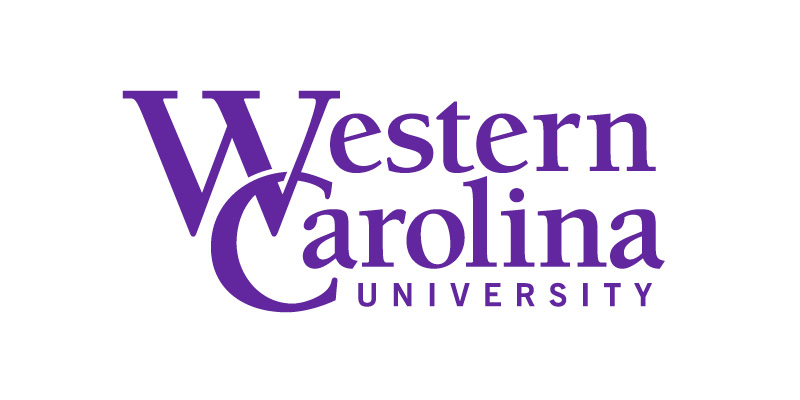Service and Experiential Learning
The Communication Department’s service and experiential learning courses expand students learning experiences while making an impact on the campus and its community. Students are paired with local clients to create a variety of communications materials, providing students with real-world hands-on experience, while providing a community organization with valuable resources.
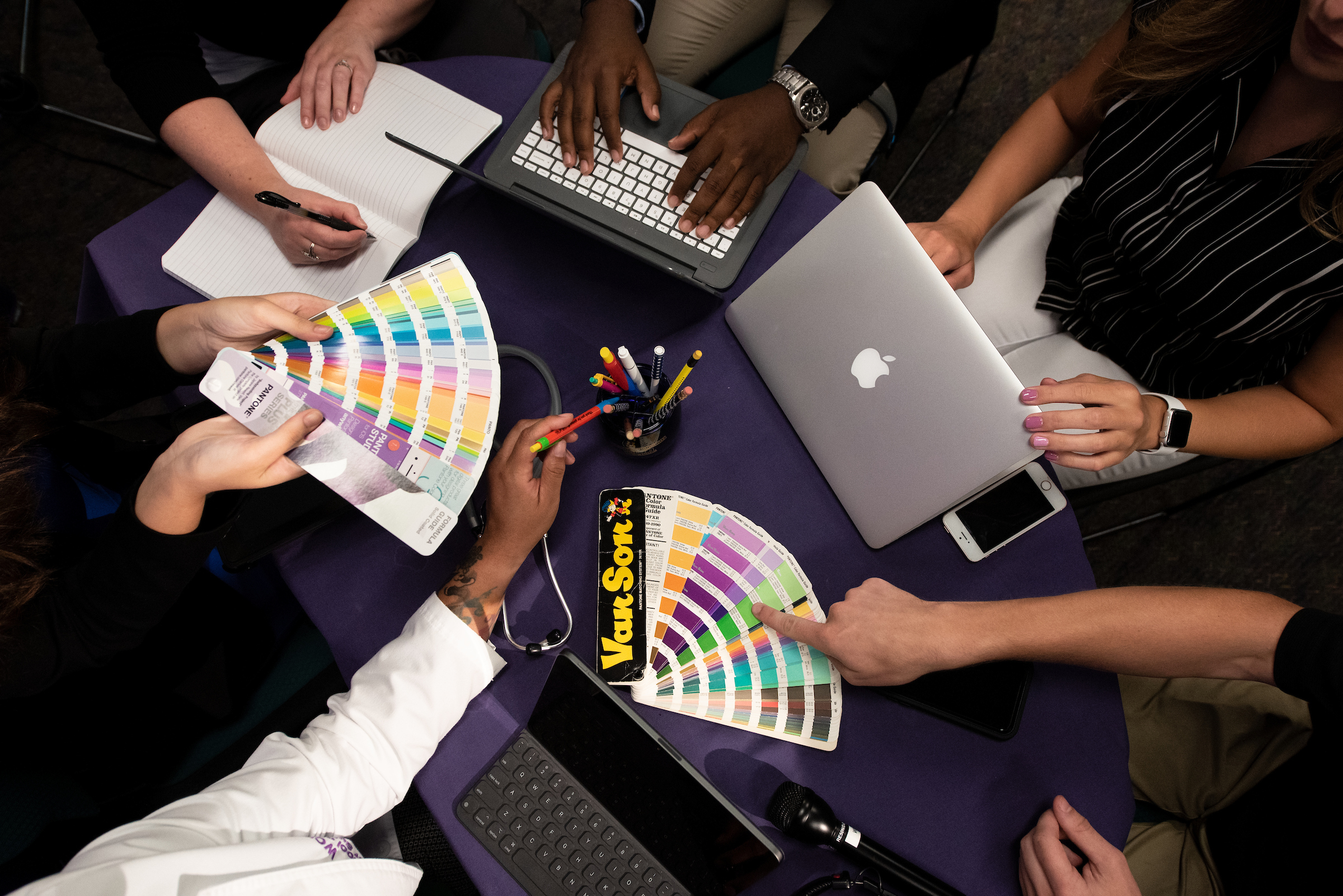
Catamount Communication
WCU’s student-run public relations firm
Students taking the Catamount Communications course practice their professional judgment and skills with various community groups and local non-profit agencies.
Previous classes have created communication plans, social media plans, radio commercials, websites, and much more.
Click the buttons below to check out some of the projects!
Jeffrey Neufeld assisted the School of Nursing’s non-profit Whee Wagon program in developing a website to help bring awareness to the program, generate higher donation levels, increase sponsored and donated wagons, and help change the lives of the children under pediatric care.
Paige Alvarez, Ben Evans, Rachel Hall, Zack McNeely, and Alexandra McQueen assisted Dillsboro, North Carolina’s Festival of Lights and Luminaries, coordinating College Night, which focuses on the WCU and SCC communities, aiming to make students aware of the event through promotional materials.
Daniel Dove, Kenyetta McGowens, and Sally Morris assisted the Western North Carolina AIDS Project with promoting a HIV/AIDS testing event on the WCU Campus, and a holiday toy drive to benefit children and families who have been effected by HIV and AIDS.
Brandon Allen, Christina Bridgeman, Daniel Ross, Jeremy Mulloy, Jason Lee, Jenny Lauer, Mary Collins, Jason Walsh assisted Avidity Recording Studio with generating positive publicity, increasing visibility, demonstrating the professional services offered by the business, and earning them credibility among aspiring artists.
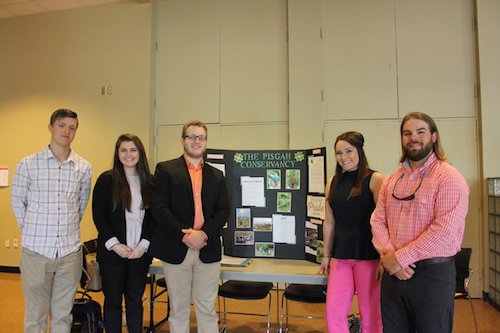
Public Relations Campaigns
Students in the public relations concentration are required to take our Public Relations Campaigns course. Student teams are assigned to projects with various community groups including non-profits, local businesses, and campus departments.
Previous classes have created communication plans, social media plans, websites, and much more.
Click the buttons below to check out some of the projects!
Elise Holbrook, David Langston, Mateius Brown, Larson Byrd, and Kerrigan Duncan assisted Asheville’s Western Carolina Rescue Mission, creating a communication plan and event planning guide for their event, A Homeless Night.
Rachel Jennings, Daniel Dove, Ami Goodlake, Kayla Holt, Colin Croat assisted Loving Food Resources with developing and promoting a casino themed fundraising event to raise money for the organization.
Julianna Barto, Sara Cardaci, Patrick Dinehart, Megan Mulrain, and Joshua Vance assisted the Jackson County Good Samaritan Clinic with coordinating and publicizing the Good Samaritan Cycle, a bike ride through the community that highlights how the Good Samaritan Clinic partners with other organizations to provide healthcare for their neighbors.
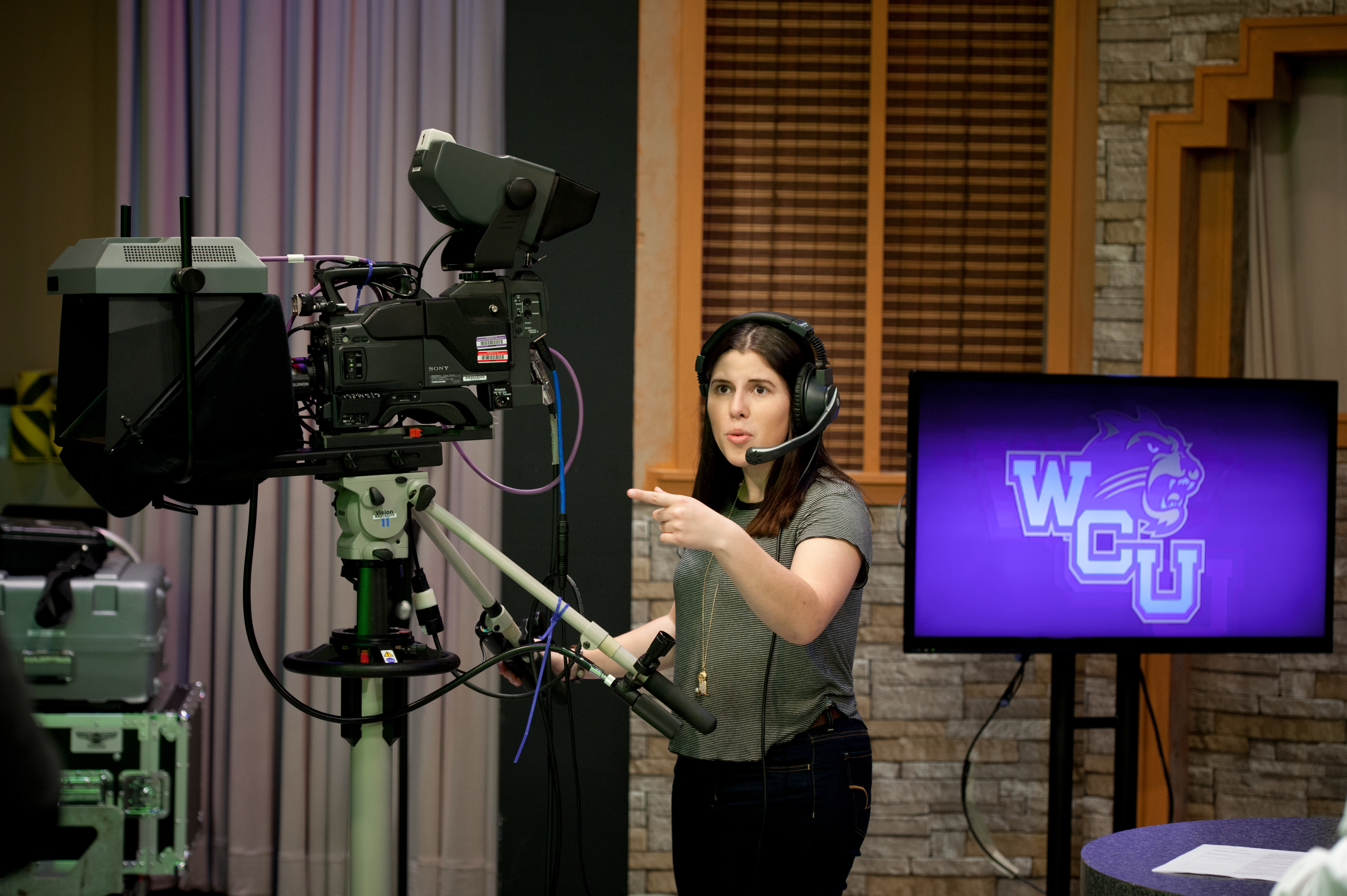
Video Projects
The video projects class runs in conjunction with Catamount Communications, WCU’s student-run public relations firm.
Students taking the tv projects course practice their professional judgment and skills with the various community groups and local non-profit agencies that Catamount Communications students are paired with to provide accompanying video content for campaigns.
Click the buttons below to check out some of the projects!
Gavin Stewart assisted the Asheville Gay Men’s Chorus, creating a promotional recruitment video for their group.
Doug Brown, Jonathan Calhoun, Samantha Cook assisted the Pisgah Conservancy, creating a video to promote their Pisgah Pride event.
Rachel Jennings and Megan Mulrain assisted the Hands On! Children’s Museum, creating a promotional video for the business.
Jonathan Birek, Jennifer Thomas, and Kyia Hough assisted Hominy Baptist Church’s DayStay adult day care program, creating a video about their services and its impact.
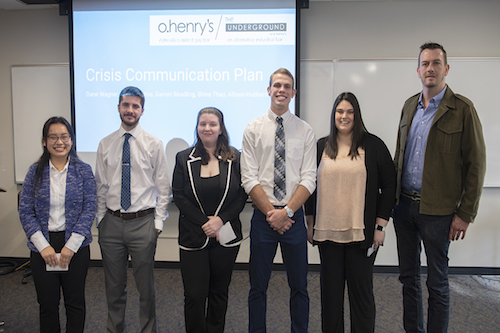
Crisis Communication
With crises happening every day and everywhere, the question is no longer if a crisis will happen, but when. Student teams are assigned to various community groups including non-profits, local businesses, and campus departments, to develop crisis plans based upon the organizations most likely crisis scenarios.
Students work closely with their community partners to understand their organizations in order to develop a full crisis communications plan to be used in the event of a particular crisis. Due to the confidential nature of crisis communication plans, examples of student projects cannot be posted online.
Check out this story to see how crisis communication students helped O.Henry’s of Asheville prepare for crisis!
Testimonials
I’m really grateful for Western’s service learning program because out of my 4 years at WCU, it was easily the most meaningful work I got to take part in. I worked with a great team to develop a crisis communication plan scenario for a local bar in Asheville. It meant a lot to me because it was an incredibly real and sobering assignment, and I know it could make a huge difference, even though I hope it doesn’t have to. It also prepared me for how important public relations can be in crisis communications, and it showed me how big of a difference in can make in peoples lives.
Service learning takes your educational experience to the next level. It is one thing to discuss theory and hypothetical situations and quite another to flesh them out with a real-world client. Working on a campaign to educate about the vaping epidemic enabled me to produce a professional level product, work with a team, and coordinate with several different contacts. Service learning is much more than a class designation, it’s a way to take your degree and knowledge base to the next level.
Learning communication skills through direct experience furthered my education and career in ways I never thought possible. It taught me skills while and helped me find my passions and strengths. Having the opportunity to work with real-world clients is hands down the most valuable thing about Western’s Communication program. Here you aren’t just reading about skills in a textbook, you’re actually developing them before you walk across the stage at graduation, leaving you with a full resume and portfolio, as well as an eye for the career you want.
Service learning helped me to realize how important it is to be prepared for anything, for example, crisis communication. It taught me how planning aids in the process of effective communication when relaying messages to a targeted public. It gave me real-world experience to help me understand processes.
